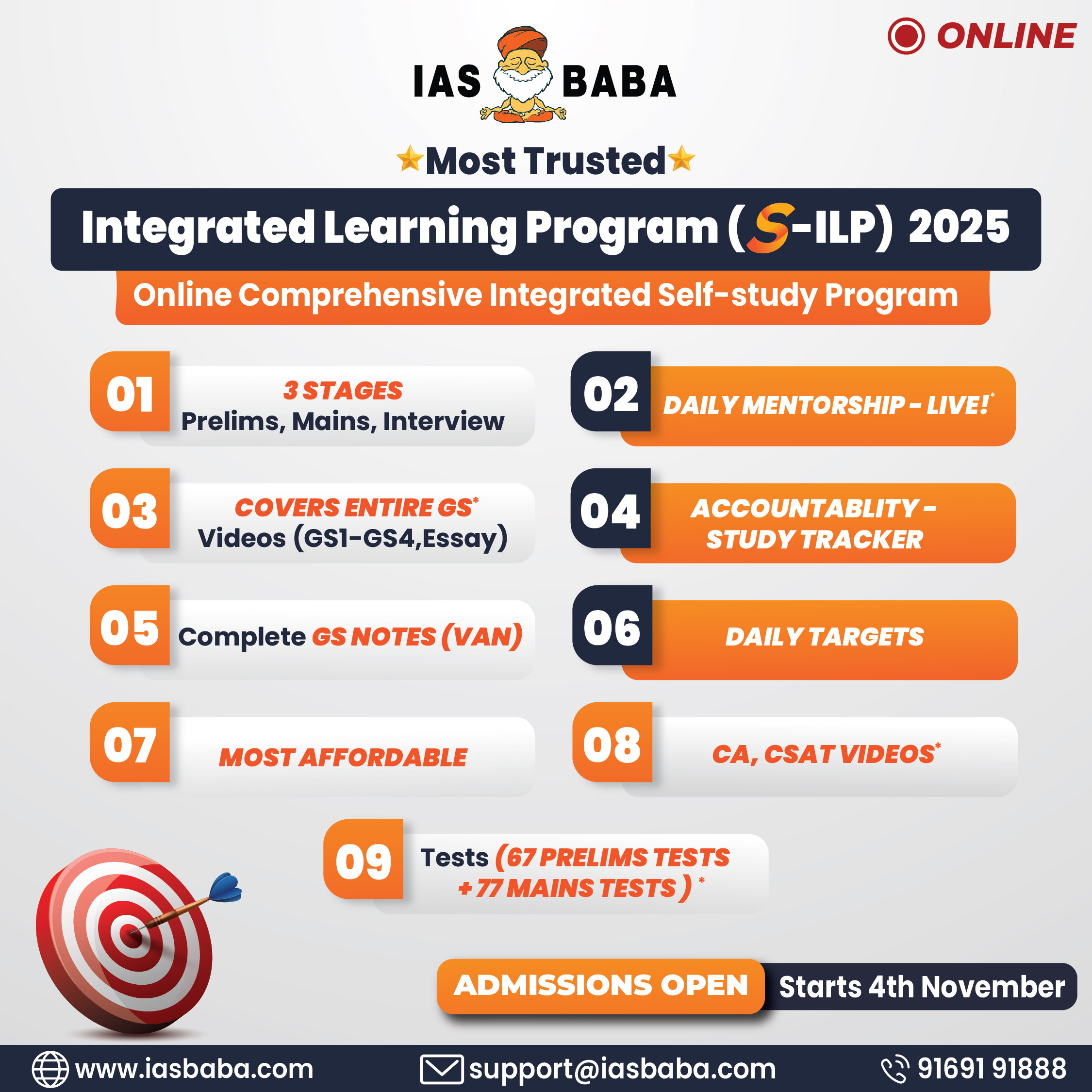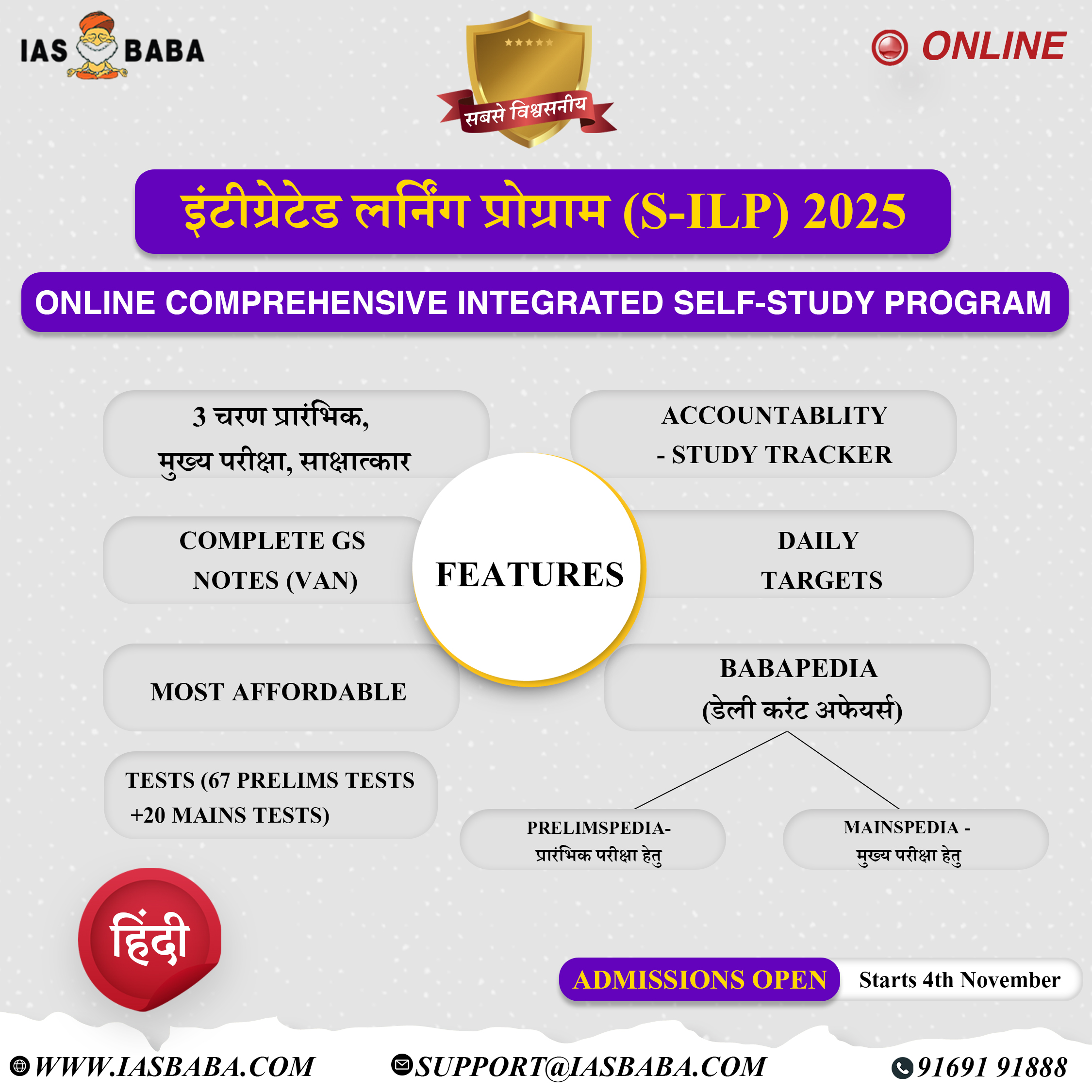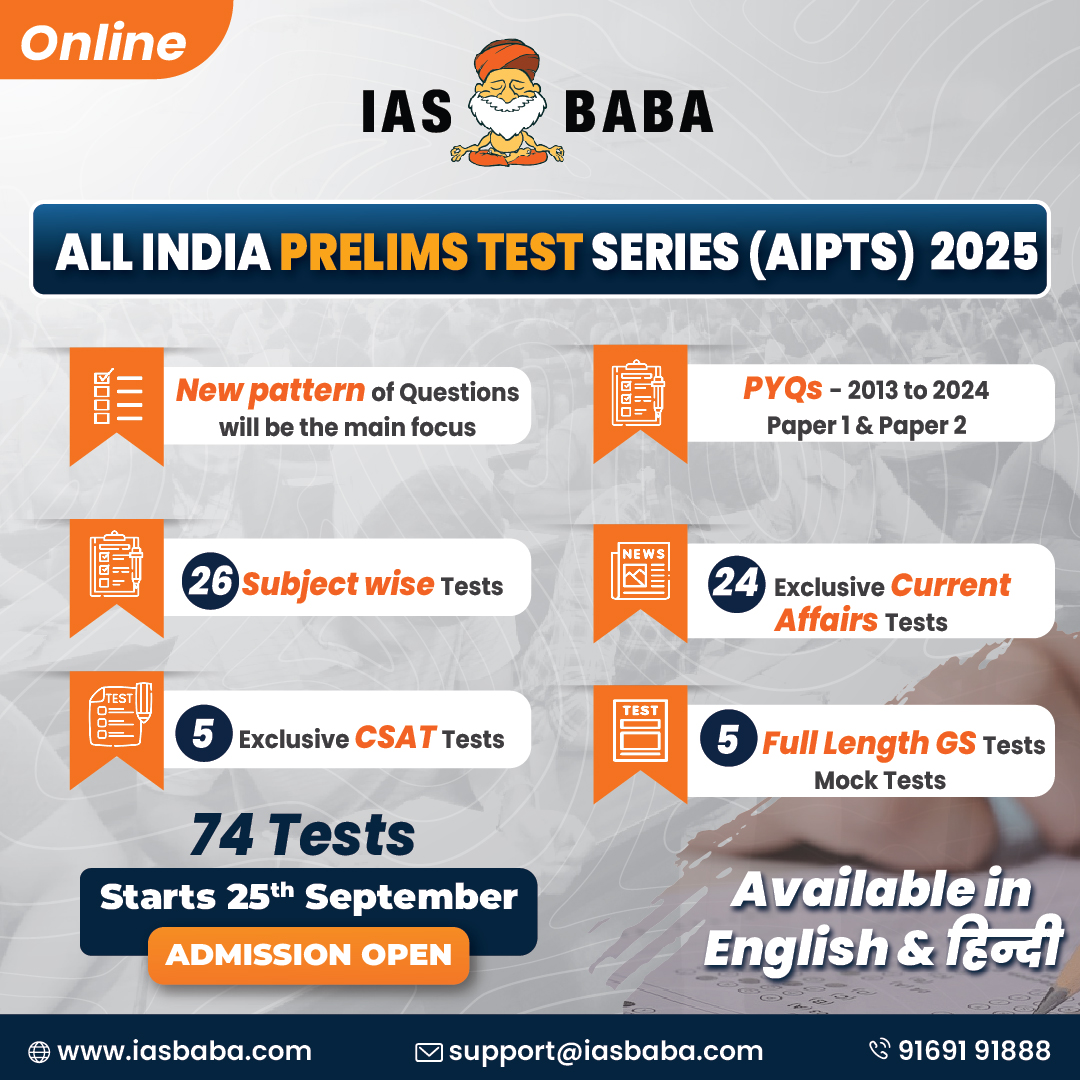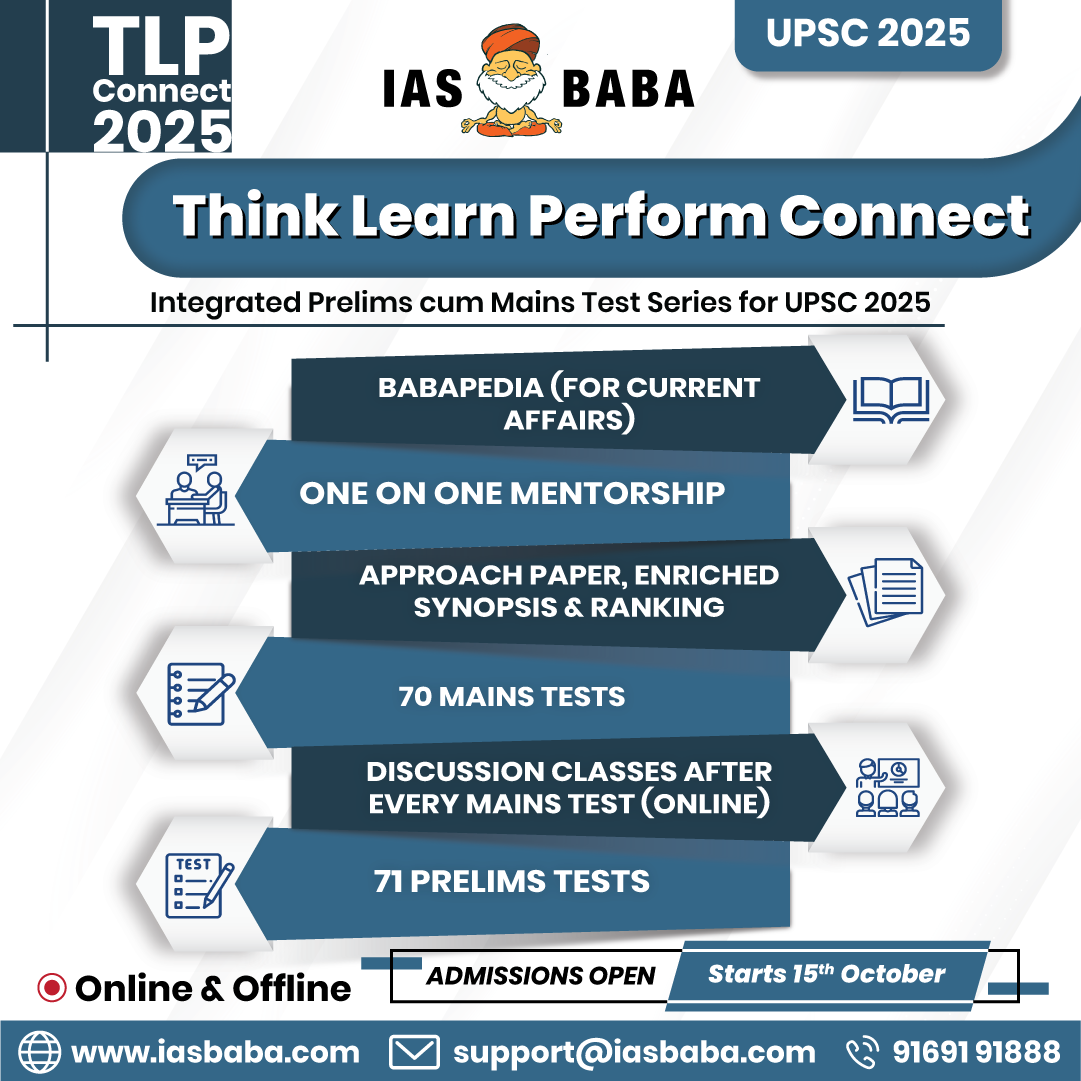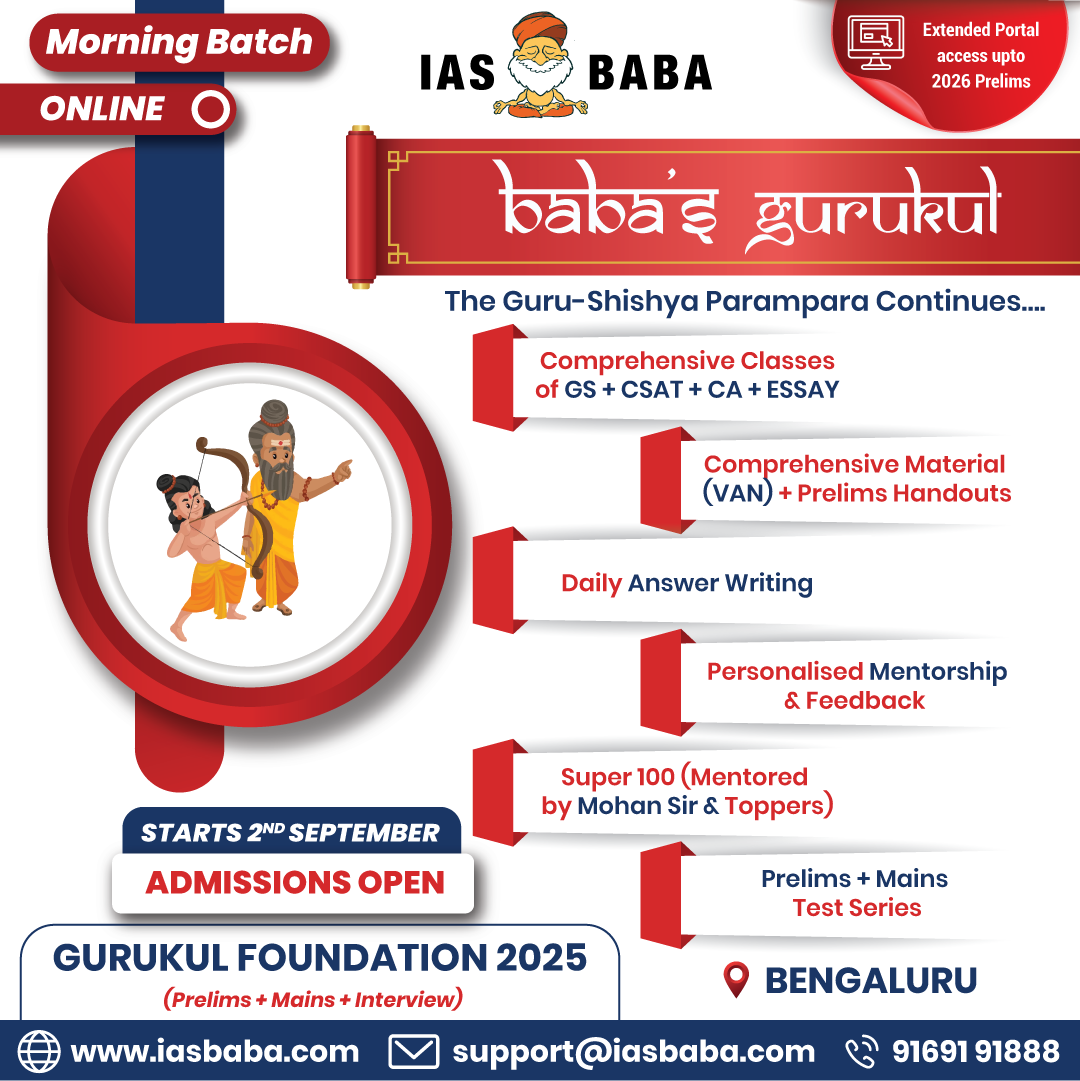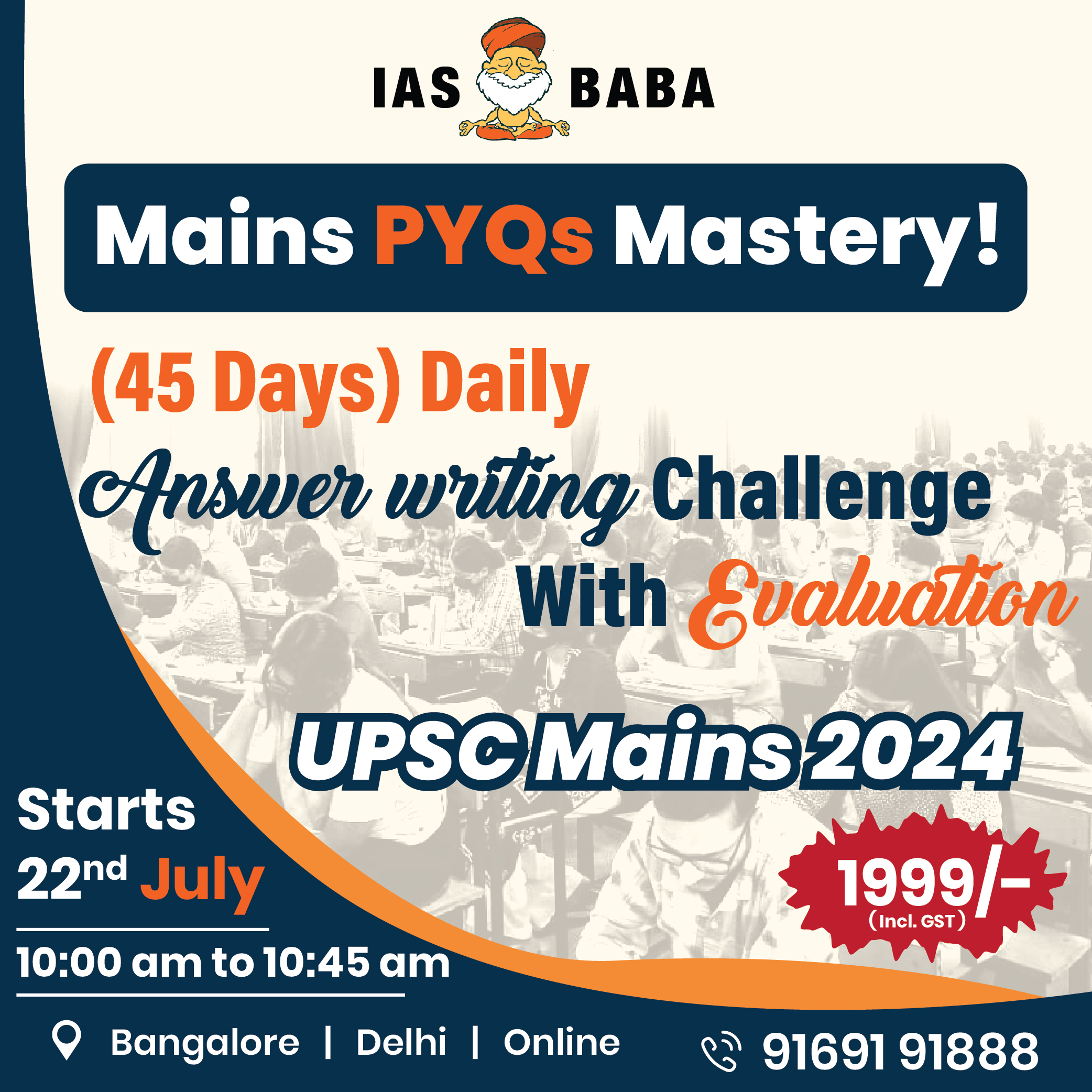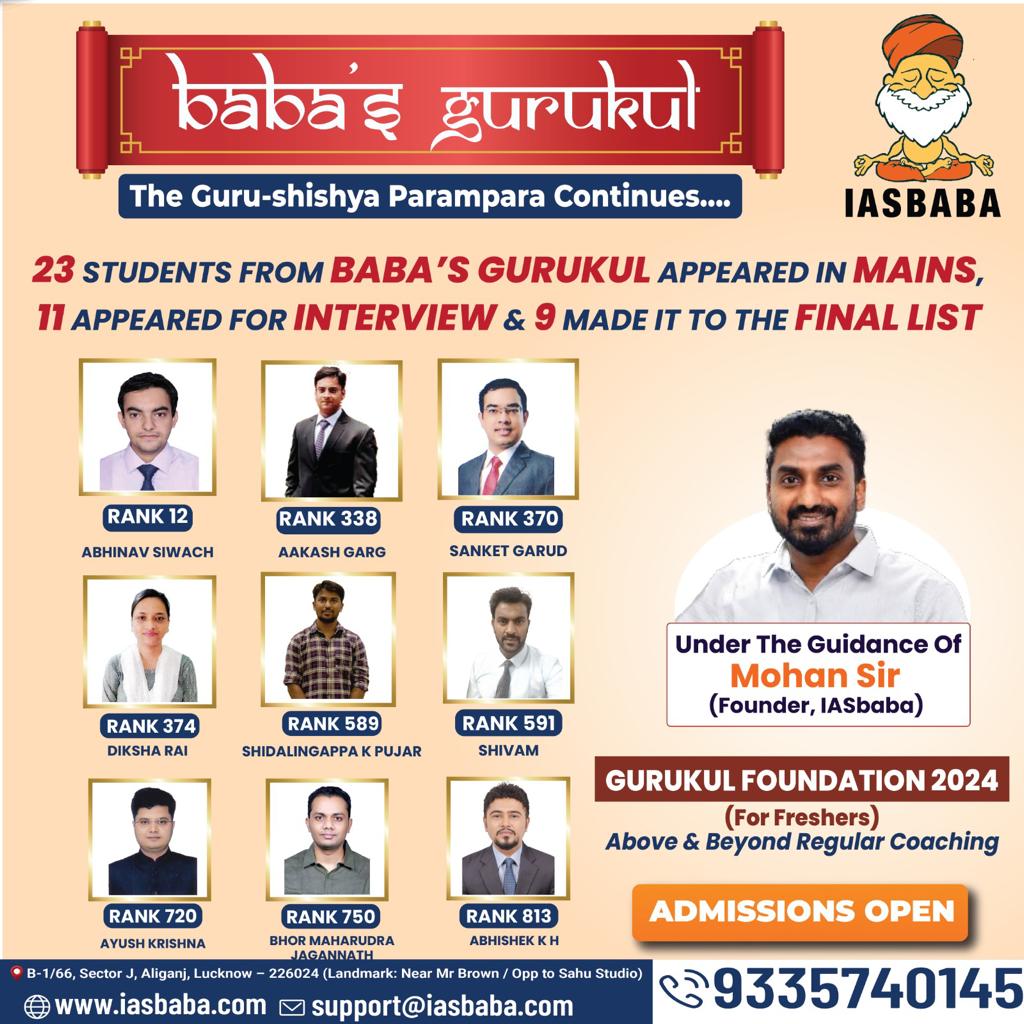IASbaba's Daily Current Affairs Analysis, IASbaba's Daily Current Affairs Jan 2017, National, UPSC
IASbaba’s Daily Current Affairs – 4th January 2017
Archives
NATIONAL
TOPIC: General Studies 2
- Salient features of the Representation of People’s Act
Democracy- for an Individual or Public Sphere?
Election is termed as a ‘secular’ exercise and thus there should be no involvement of religion. Secular in the sense that the relationship of man with God is an individual and personal choice and thus, the state has to keep itself within limits.
In a landmark judgement, a 4:3 divided seven judge constitution bench of Supreme Court held that an appeal for votes during elections on the basis of religion, caste, race, community or language, even that of the electorate, will amount to a ‘corrupt practice’ and call for disqualification of the candidate.
Background:
- Section 123 (3) of RPA Act: Corrupt Electoral Practice- “The appeal by a candidate or his agent or by any other person with the consent of a candidate or his election agent to vote or refrain from voting for any person on the ground of his religion, race, caste, community or language…”
- The question referred to the Constitution Bench was whether the word ‘his’ used in Section 123 (3) of the Representation of the People Act only meant a bar on appeals made in the name of the candidate or his rival or his agent.
- For example: “I am a Hindu, vote for me”, or “My opponent is a Hindu, don’t vote for her”. This was corrupt practice.
- Or if the word ‘his’ also extend to soliciting votes on the basis of the religion, caste, community, race, language of the electorate as a whole (the voter too).
- For example: “You speak Tamil, vote for me/party”. This will be now a corrupt practice.
Making democracy stronger- A majority view
- The latter means a blanket ban on any appeal, reference, campaign, discussion, dialogue or debate on the basis of religion, race, caste, community or language, even if such a debate was on the deprivations suffered by the voters due to these considerations.
- The majority view held that an election that was fought and decided on these issues was a distortion of democracy. Two reasons
- Divisive tactics: For a democracy to survive, there must be agreements on certain basic essentials which unite the citizens together. Religion, language, caste, etc were precisely the kind of divisive markers of identity that threatened this fragile consensus
- Irrational choice: Democracy depends on voter exercising their franchise based on rational thought and action. If appeals are made on religion, caste, language basis, it might result into different and may be, an irrational choice.
- Therefore, to restrict Section 123(3)’s prohibition only to electoral candidates would be contrary to public interest.
- The CJI said that appealing on the basis of religion would amount to “mixing religion with State power” which is against the fundamental value of Constitution of India- Secularism.
- The electorate has to participate as a rational individual, deliberating about the public interest, not to be affected by the baggage of religion, caste, language or community.
- Thus, the word “his” in Section 123(3) was to be understood broadly, referring to both the speaker as well as the audience. In effect, it prohibited appeals to the prohibited “grounds” (religion, caste etc) during the electoral process.
The dissent judgement
- This rule was passed by a majority 4:3. The minority favoured limiting the ambit of the sub-section to cover only candidates who sought votes on such grounds, or the rivals they wanted the voters not to back on similar grounds.
- Here, the arguments put forward were that there were historic discriminations and deprivations suffered by the masses on the ground of religion, caste and language.
- Religion, caste and language are as much a symbol of social discrimination imposed on large segments of our society. They are central theme of the Constitution to produce a just social order. Thus, they cannot be barred from being discussed in elections.
- Electoral politics in a democratic polity is about social mobilisation and access to governance is a means of addressing social disparities.
- Social mobilisation is a powerful instrument of bringing marginalised groups into the mainstream where the candidate can speak about the legitimate concerns of citizens that the injustices faced by them on the basis of traits having an origin in religion, race, caste, community or language can be remedied.
- There is no such thing as an ‘individual’ as he always is situated in their ‘social context’. These have been characterised in India by religion, language, caste and community.
- These are, and have been, the sites of inclusion and exclusion, privilege and oppression, domination and resistance, power, pleasure, discrimination, and suffering.
- Today, there is a visible change in society where people who have been discriminated against for centuries have acquired a certain social salience. It is this democratic upbringing that allowed B.R. Ambedkar to form the All India Scheduled Castes Federation, a political party exclusively devoted to Dalit emancipation.
- This was because the oppressed class were allowed to organise their issues around their social status and gain political power.
- For this reason, the dissent held that Section 123(3) had to be construed narrowly.
Too much into ‘his’ dispute?
- This dispute is based on a single pronoun ‘his’ which was introduced in the 1961 amendment.
- The majority opinion favours a ‘purposive interpretation’, holding that it covered the candidates as well as the voter. The purpose of the amendment was to widen the scope of the particular corrupt practice.
- But, there is a justifiable worry that a wider interpretation may lead to eliminating from the poll discourse political issues that are based on religion, caste or language.
- It has to be understood that all such legal issues have an attached social context.
IASbaba’s views
The overall message is clear- secularism is basic feature of Constitution and has been interpreted in the light of Parliament’s intention to prohibit any religious or sectarian appeal for votes. But Indian secularism has to be understood differently where it does not mandate complete exclusion of religion from the public sphere. Identities based upon religion, caste, and language should not be always treated as an evil faction but rather as centre point as a site of emancipation around which citizens organise themselves and seek liberation through the attainment of political power.
It will no doubt be now dependent upon the wisdom of the judges dealing with election cases to draw the line between what is permissible and what is not, and look at the context in which some statements are made before deciding whether they constitute a corrupt practice.
Connecting the dots:
- A blanket ban on appealing people on basis on religion, caste etc. for political power is an appropriate solution to imbibe the constitutional values in electorates. Do you agree? Give reasons for your answer.
- A rational individual or a connective community- What is important for the Indian democracy? In light of recent SC judgement on declaring appeals based on certain grounds as ‘corrupt practice’, critically analyse the aforementioned statement.
GOVERNANCE
TOPIC:
General Studies 2
- Government policies and interventions for development in various sectors and issues arising out of their design and implementation.
- Welfare schemes for vulnerable sections of the population by the Centre and States and the performance of these schemes; mechanisms, laws, institutions and bodies constituted for the protection and betterment of these vulnerable sections
General Studies 4
- Probity in Governance: Concept of public service; Information sharing and transparency in government.
Analysis of Government Policies
Introduction
India’s growth story in the recent past has been marked by a series of transformative initiatives that have enhanced the country’s image internationally and also worked towards improving the living standards of all sections of the people. Inclusive growth and welfare have been two essential pillars in India’s growth story. India’s recent performance in various policy areas represents a bright future for the country.
Social Inclusion and Welfare
- Welfare of the poor, farmers, women, workers, small traders and other vulnerable sections has been on the top of the priority list of government. Ever since the 11th Five Year Plan, India has laid continuous emphasis on inclusive growth.
- The two major problems of black money and corruption have been the biggest hurdles to India’s growth. Along with improving the living standards of vulnerable sections, the government has worked continuously on tackling black money and corruption.
- Initiatives tackling the menace of black money include constituting a Special Investigation Team (SIT) to unearth black money stashed abroad, Voluntary Disclosure Scheme and the historic demonetisation of currency.
- The latest relief measures announced by the government on the eve of new year for PM to the poor, middle classes, farmers, women and senior citizens shows how the government has been making efforts towards transparent administration.
International Relations
In the past few years, the present government has made efforts to ensure that India’s visibility on the global stage is very high. It is also taking steps to ensure that its voice is heard on international platforms.
- As soon as Prime Minister Modi came to power, he took a major strategic step by inviting all the neighbouring country leaders for the swearing in ceremony. Although, India has had its share of troubles with respect to the SAARC but India has been constantly emphasising on regional co-operation.
- An important development of engagement with world leaders and India’s role as a responsible nuclear state has been the inking of agreements with Canada, Australia and Kazakhstan for the supply of uranium to meet India’s nuclear energy needs.
- The way India negotiated its way through the issue of Peace Clause under the WTO negotiations has also been exemplary.
- India has had improved relations with the USA, Japan, Germany and many more nations.
Economic Progress
The Government of India has taken steps in areas related to economics to ensure that India is able to experience sustainable growth and macroeconomic development.
- India has worked towards widening the social security net by increasing coverage of deprived sections through the creation of Jan Dhan accounts, MUDRA bank and insurance schemes.
- Opening up more avenues for investment through the FDI reforms will give a huge push to various important sectors of the economy.
- Controlling inflation, increasing spending on infrastructure and dismantling red tape have been among the measures that have helped the GDP register more than seven per cent growth.
- Even after demonetisation, in the long run, the GDP is expected to improve as the informal economy vastly reduces and the formal economy expands.
- The government has also worked hard towards initiating reforms for an improvement in India’s ranking in ease of doing business index. For this purpose, India has improved in terms of transparency and accountability. Example: Transparency relating to the auctioning of spectrum and coal blocks.
Infrastructure and Resource Development
- Make In India, Skill India, Digital India and Clean India are among the innovative campaigns that are shaping India’s growth story through adequate focus on human resource development.
- Five major industrial corridors are being developed across the country to increase the contribution of the manufacturing sector to 25 per cent of GDP from the existing 16 per cent.
- Currently only 2% of India’s workforce has formal training. The Skill India scheme aims to reap our demographic advantage with youth comprising 65 per cent of the country’s population. To give necessary focus to this area, for the first time since Independence, a separate ministry for skill development has been created.
Agriculture and Farm Welfare
- Pradhan Mantri Fasal Bima Yojana has been introduced to improve upon the lacunae in the earlier insurance schemes for the agriculture sector and provide maximum safety net to the farmers.
- 3 million hectares have been brought under micro-irrigation through the Pradhan Mantri Krishi Sinchayee Yojana.
- The e-National Agriculture Market aims to empower the farmer. With digital transactions getting a huge fillip, farmers stand to benefit immensely as more mandis get linked to e-NAM and ensures that farmers get adequate market access for their crops
Conclusion
There is no doubt that all these areas have had their respective challenges and hurdles as well but the positive intent behind the continuous reforms is what can be really instrumental in shaping India’s growth story. Persistent efforts towards reforms will lead to ensure that in India farmers, traders, women and youth are prosperous, empowered and gainfully employed. These measures will also ensure that maximum population has access to the basic amenities of electricity, water and a toilet.
Connecting the dots
- Critically analyse how India has constantly focussed on social welfare and inclusive growth through various reform initiatives in the recent past.
MUST READ
Death of a naturalist
Trials By Terror
We live with violent opposites, nuance is dead, so is dissent
Push for railways’ special safety fund is a welcome step
The need to withdraw Afspa from Manipur
Reclaiming India’s leverage on Tibet
Is a long-term capital gains tax on equity a bad idea?
Is the middle class getting poorer?



